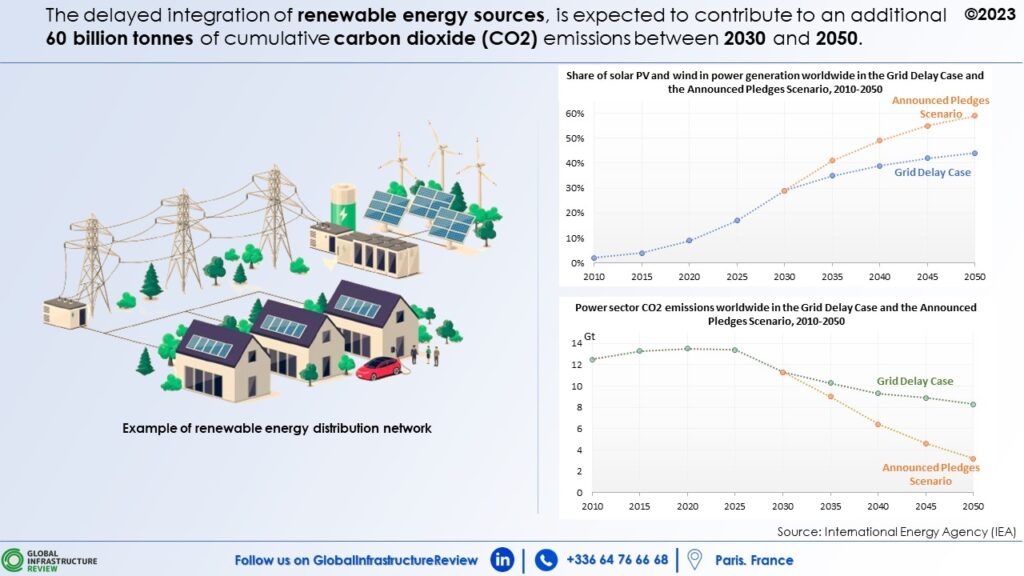Electricity grids have been the backbone of our electricity systems for over a century, providing power to homes, businesses and essential facilities.
However, a recent study by the International Energy Agency (IEA), published in October 2023, reveals that these grids are struggling to keep pace with rapid advances in clean energy technologies such as solar and wind.
As the importance of electricity continues to grow, so does the pressure on our grids. According to IEA research, by 2040 we will need to add or replace 80 million kilometres of power lines, equivalent to the entire global network today. This expansion is essential to guarantee energy security and meet national energy and climate objectives.
New technologies, such as heat pumps and electric vehicles, have extended the use of electricity to areas traditionally dominated by fossil fuels. At the same time, countries are rapidly developing renewable energy projects, which require additional power lines to connect them to efficient distribution networks and guarantee a constant energy supply.
The number of renewable energy projects waiting to be connected to the grid continues to grow, with 1,500 gigawatts nearing completion – five times the world’s added capacity by 2022.
The report presents a new scenario, the Grid Delay Case, which predicts an increase of 60 billion tonnes in cumulative carbon dioxide emissions between 2030 and 2050 if investment in grids does not increase rapidly. This delay represents a 40% risk of exceeding the 2°C limit, which would compromise the 1.5°C target set by the Paris Agreement.

Several measures are proposed to meet this challenge. It is essential to strengthen the links between networks within and between nations in order to effectively integrate the growing proportions of solar and wind energy. Governments are urged to support large-scale transmission projects to ensure that grids are ready for a significant expansion of renewables. In addition, network operators and developers are encouraged to embrace digitisation for more flexible and robust networks in the future.
In a nutshell, the IEA’s findings underline the urgency of investing in modern, resilient electricity grids to ensure the success of clean energy transitions worldwide. Given the growing dependence on intermittent renewable sources, doubling investment and adapting regulations are essential to create a sustainable and secure energy future.
To learn more, check out the following link: https://www.iea.org/reports/electricity-grids-and-secure-energy-transitions